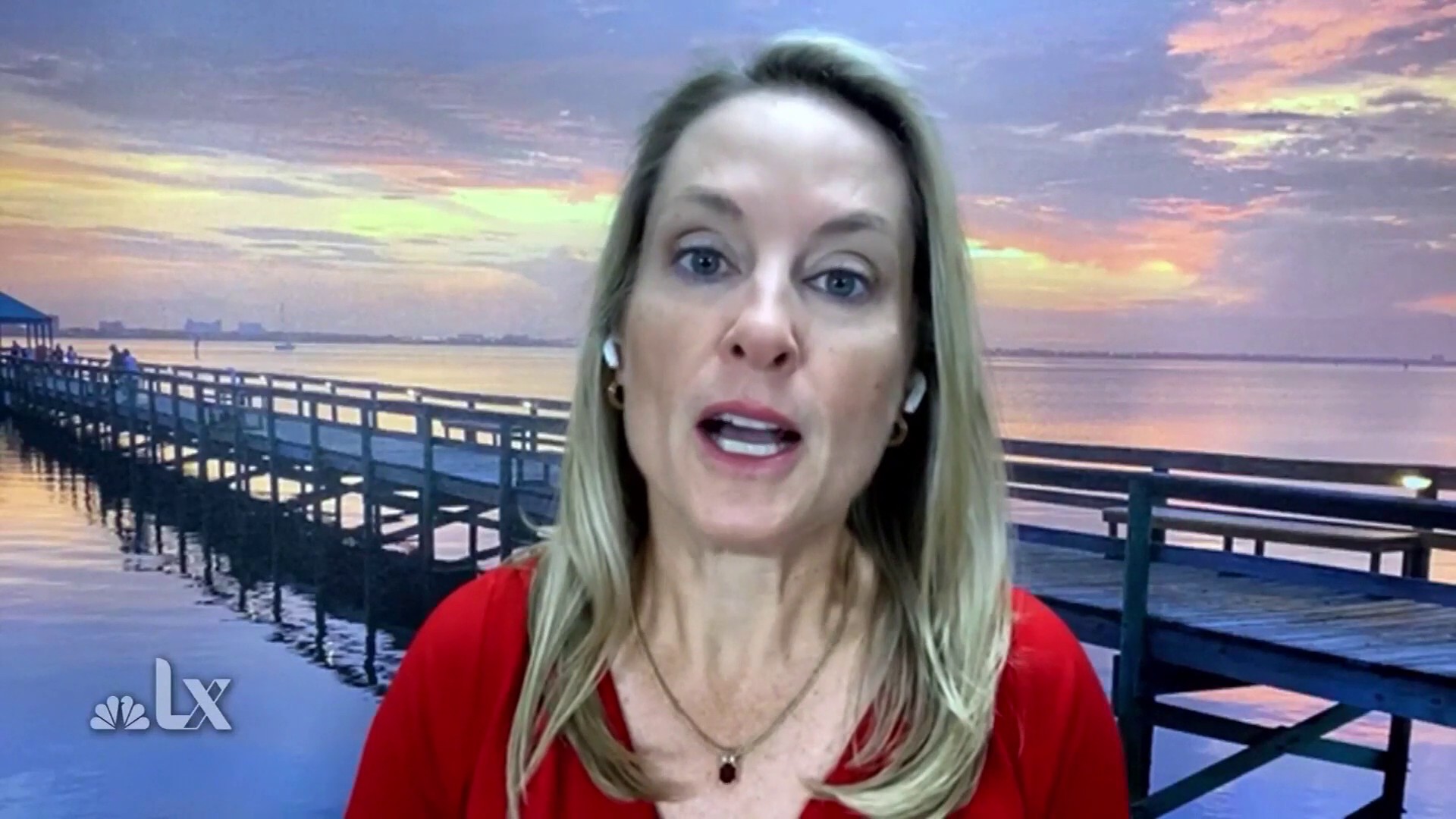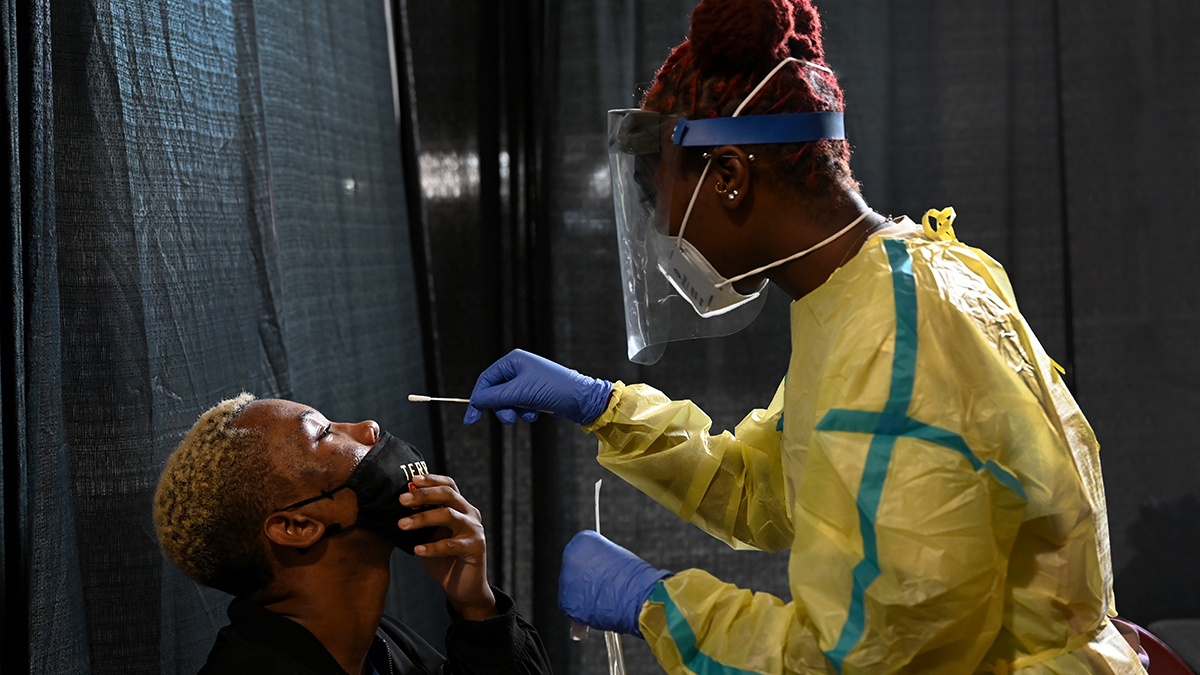President Trump is rejecting the $900 billion COVID-19 relief bill passed by Congress after months of gridlock. In a video posted to Twitter on Tuesday, the president complained the bill’s $600 cash payment to Americans was too small.
Whether and when residents of the D.C. area will see financial relief remained in limbo Sunday as President Donald Trump refused to sign an end-of-year COVID relief and spending bill after it had won sweeping approval in both houses of Congress.
Without the widespread funding provided by the massive measure, a government shutdown will occur when money runs out at 12:01 a.m. Tuesday.
Washington has been reeling since Trump turned on the deal after the White House had assured Republican leaders that Trump would support it.
We've got the news you need to know to start your day. Sign up for the First & 4Most morning newsletter — delivered to your inbox daily. Sign up here.
Instead, he assailed the bill's plan to provide $600 COVID relief checks to most Americans — insisting it should be $2,000. House Republicans swiftly rejected that idea during a rare Christmas Eve session. But Trump has not been swayed in spite of the nation being in the grip of a pandemic.
President-elect Joe Biden called on Trump to sign the bill immediately as the midnight Saturday deadline neared for two federal programs providing unemployment aid.

With COVID-19 cases surging and a difficult winter expected, state and local officials as well as health care professionals are taking steps to raise awareness about getting help during a time of rising mental health concerns, particularly during the holiday season when the problem can become more acute.
Dr. David Marcozzi, a professor of emergency medicine at the University of Maryland School of Medicine who is a senior medical advisor for COVID-19 to Gov. Larry Hogan, heightened attention on mental health during the pandemic when he spoke about the suicide of a longtime friend during a news conference last month.
“Let's make sure we reach out,” he said, pausing as he spoke with difficulty. "Let’s make sure we support each other and talk to a professional if helpful.”
What the Data Shows
D.C reported 492 more cases of the virus in the past two days. Six more residents died, including a 30-year-old man. The D.C. Health Department flagged the city’s daily case rate as high and cautioned that more than 12% of total hospital capacity is now devoted to COVID-19 patients.
Maryland reported 1,758 more cases of the virus. Thirty-one more people died. Updated data for Virginia was not immediately available.
Local Coronavirus Headlines
- The high level of coronavirus cases is putting stress on Northern Virginia hospitals — and the health care professionals who work there.
- The stress of the pandemic is a grind. A data analysis from the American Dental Association shows a surge in cases of teeth grinding, clenching and cracking during the COVID-19 crisis. The increases are striking and potentially costly and painful for sufferers.
- All Maryland hospitals are expected to receive some COVID-19 vaccines in the next two weeks to begin vaccinating critical frontline staff, a state health official said Tuesday.
- A professor is using the trust Black Americans have in barbers to make them more comfortable with taking the COVID-19 vaccine.
- A rapid antigen test might seem like a great idea when you're in a hurry and don't have time to wait a few days for results, but those tests are really designed for people with COVID-19 symptoms and in asymptomatic patients can deliver false positive results.
- Help is available for thousands of D.C. residents who have fallen behind on rent payments.
- Maryland Gov. Larry Hogan announced measures to boost the number of available health care workers and plan for more hospital beds.
- COVID-19 numbers continue to paint a dire picture for Black Americans, and there is an ongoing effort in the Black community to increase testing.
Reopening Tracker
- A judge upheld Montgomery County, Maryland's ban on indoor dining.
- D.C. has suspended indoor dining until 5 a.m. on Jan. 15, Mayor Muriel Bowser said in a press release.
- Virginia instituted a curfew and a stricter mask mandate.
- Maryland tightened restrictions on businesses, bars and restaurants.
- All Smithsonian museums and the National Zoo closed because of rising COVID-19 cases, officials announced.
- Hours before some Fairfax County students were set to return to in-person learning, the school district said that they needed to delay the plan.
- Courts throughout Maryland partially shut down due to the pandemic.
- Virginia announced new measures to fight COVID-19 as cases of the virus have spiked across the country.
- Prince George's County tightened restrictions and required masks to be worn outdoors.
- Montgomery County reduced capacity limits at many businesses, including for indoor dining, to 25%.
- D.C.'s mayor extended the city's coronavirus state of emergency to last through the end of the year.

How to Stay Safe
Anyone can get COVID-19. Here are three simple ways the CDC says you can lower your risk:
- Wear a snug-fitting mask that covers your nose and mouth.
- Avoid being indoors with people who are not members of your household. The more people you are in contact with, the more likely you are to be exposed to COVID-19. If you are indoors with people you don’t live with, stay at least six feet apart and keep your mask on.
- Wash your hands often, especially after you have been in a public place.



